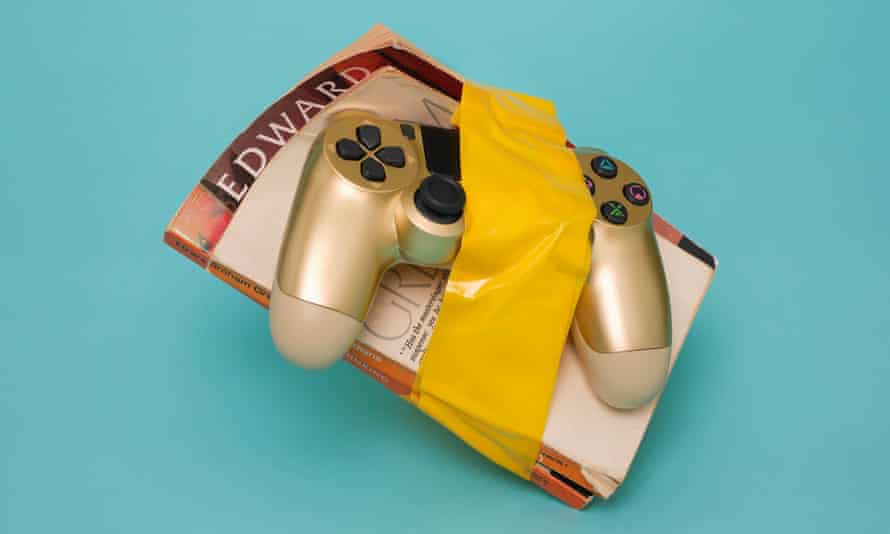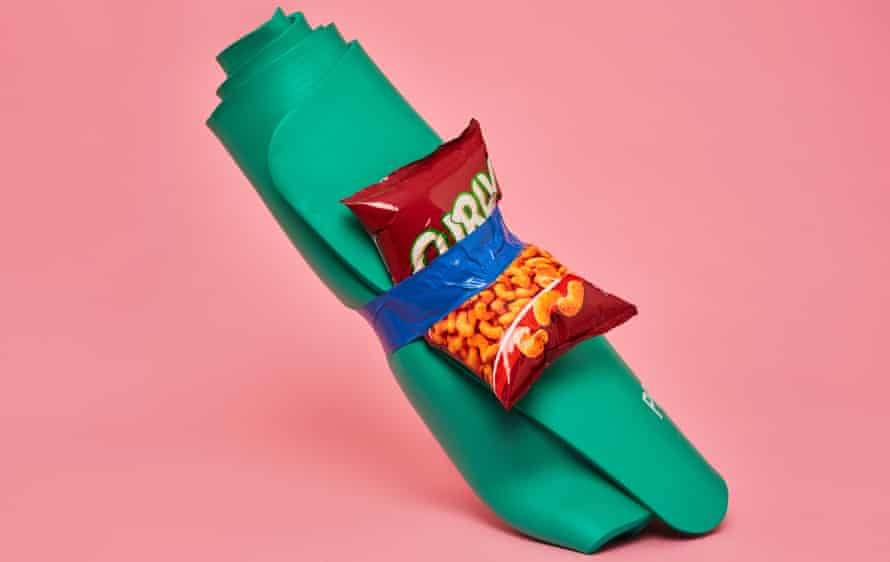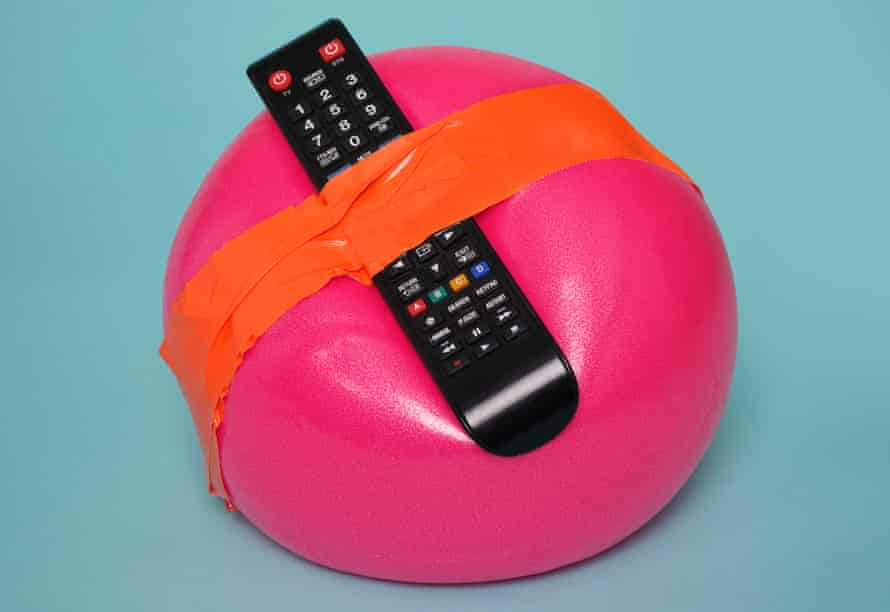Be bad, much better– from anger to laziness, how to put your worst routines to excellent usage
W e have the Babylonians to blame for making the brand-new year a celebration of self-flagellation– although their resolutions were more about calming gods than weight-loss or cutting down on alcohol. (Sensibly, they performed their routines in spring in the Middle East, not the meteorological hellscape that is a British January.) John Wesley, the creator of Methodism, revived the concept in 1740, with a yearly brand-new year’s service of resolution– his consisted of a guarantee never ever to laugh, which may discuss why we likewise pick penalty over delight.
But it does not need to be by doing this. What if, rather of being inspired by regret and embarassment, we take advantage of our worst practices to serve us much better? By being smartly, intentionally lazier; less conscious, disorganised, slower (and with a little bit of self-compassion), we may really be more effective, efficient and better– however on our own terms. Here’s how.
Make peace with your body
Most of the body positivity motion is well intentioned– what’s not to like about being motivated to like our bodies whatever they appear like? “But body positivity was a motion developed by fat and black ladies as an area to commemorate themselves due to the fact that they didn’t see themselves represented,” states Chrissy King, activist and creator of the Body Liberation task. “And it’s been co-opted by thinner, straight white females stressing a bit of cellulite or fat rolls and stating, ‘I enjoy myself anyhow’. That was never ever the point of the motion.”
As well as marginalising the creators, the visual supremacy of ladies who are extremely near the Europeanised appeal suitable can be unpleasant and discouraging for those who reside in bodies much even more from it, in addition to for anybody with extreme body image concerns. “The concept that you’re going to enjoy your body is too far of a location to leap to,” King states. “[Body positivity] is setting some individuals up for failure.” Body neutrality is more possible. “I can search in the mirror and simply be at peace with my body,” states King. “I can discover not to state I look gross, or awful. I can state this is the body I’m residing in today, and I’m going to work towards being neutral about it.”
Body freedom takes things an action even more: “If you reside in a black body, a trans body or a handicapped body, you can like yourself with all your heart, however that does not imply that you’re not going to deal with systemic injustice on the planet since of your body. Body freedom has to do with asking: can I concern a location of approval and love for my own body, and work towards taking apart the systems of injustice that make it challenging for everybody to be able to do so?”

Be remarkably lazy
Kendra Adachi, podcast host and author of The Lazy Genius Way, is an efficiency specialist who isn’t always into making individuals more efficient. Rather, she’s interested in assisting us determine precisely which things in our lives matter to us (instead of to anybody else), how to do them well, and after that slouching (although skillfully so) about all the others– whether that’s laundry, early morning regimens or cooking (her next book is The Lazy Genius Kitchen). We must arrange our lives in manner ins which show what’s really crucial to us, she states– instead of to our moms and dads, associates good friends or neighbours– and let other, typically really noticeable, things go, even when that’s socially uneasy. For Adachi, it was accepting that she would not be the kind of mom who offered in her young kids’s school, however might be the kind who contributed cash and products; and understanding that was simply as legitimate.
Learn to enjoy unfavorable feelings
When your feline passes away and somebody breezily states, “Never mind, you can get a brand-new feline,” that’s poisonous positivity. “Two things fail with hazardous positivity,” states Robert Biswas-Diener, favorable psychologist and author of The Upside of Your Dark Side. “One is relational– when your buddy pertains to you desiring assistance, what they desire and what you provide needs to match, however typically it does not.” When we attempt to cheer somebody up who really simply wishes to be heard, “harmful positivity feels revoking”. We’ve all felt this– when a moms and dad or partner wishes to resolve our issue rather of letting us speak about it.
They wish to repair things in part since they can’t bear being near challenging sensations, and this is the 2nd issue with harmful positivity: it typically masks a mistrust of unpleasant or undesirable feelings. “But there are a million advantages about feelings– consisting of unfavorable ones such as worry, jealousy, anger, regret and unhappiness. They are how we browse the social world. [But] since individuals do not invest at any time enduring unfavorable feelings– they switch on Netflix or get a bottle of white wine– they leave touch with them, and they moms and dad their kids to be out of touch with them, too.
Sign up to our Inside Saturday newsletter for a special behind-the-scenes take a look at the making of the publication’s greatest functions, in addition to a curated list of our weekly highlights.
” But if you reduce one feeling, you reduce them all,” Biswas-Diener states. Discovering to feel challenging feelings makes it simpler when things fail in future; we will not be blindsided by both occasions and our own responses to them. If you’ve never ever needed to browse unhappiness, anger or worry, it’s practically difficult to be durable.
For Biswas-Diener, this altered how he parented: rather of calming and saving when things failed for his child, he verified his boy’s anger or frustration, implying he matured knowledgeable at handling hard sensations. We can do the very same by offering ourselves approval to feel unpleasant things such as unhappiness or stress and anxiety, providing time and area to take place, instead of constantly chasing them away with busyness, alcohol or digital diversion.
Be reasonably disorganised
According to the book A Perfect Mess: The Hidden Benefits of Disorder, “neatness and organisation can precise a high cost”. While outright turmoil isn’t practical, untidy systems are frequently more robust and versatile, according to authors David H Freedman and Eric Abrahamson, who think that continuously keeping whatever shipshape can be an unneeded wild-goose chase or cash. “Moderately disorganised individuals, organizations and systems regularly end up being more effective, durable, imaginative and reliable than extremely organised ones,” they state. We’ve been hung out into believing that being well organised is an unquestionable great, without ever asking whether that’s truly real.
Freedman and Abrahamson mention that Albert Einstein’s desk– amongst lots of others– was constantly in “stupendous chaos”, so next time somebody officious informs you to clean your desk (or your sock drawer), advise them that if among the best thinkers of perpetuity grew in a semi-shambles, then so can you.

Be less conscious
” Traditionally, meditation was never ever considered something to produce a minute of calm in the middle of crisis,” states Dr Julieta Galante, a neuroscience scientist at Cambridge University, who studies the advantages and drawbacks of mindfulness and meditation. “That is a western repurposing of it.”
Mindfulness is not a psychological health remedy– regardless of brand-new Nice assistance recommending that mindfulness ought to be suggested prior to medication for anxiety. Research study recommends approximately 25% of meditators experience unfavorable impacts, consisting of stress and anxiety, anxiety attack, interfered with sleep and psychological or physical dissociation– precisely what we’re led to think can be enhanced by mindfulness. Galante compares meditation to a drug with usually favorable outcomes for the majority of people, however for which possible side-effects and interactions ought to be noted, instead of something anybody can begin, by means of an app, without any experienced assistance to draw on if things fail. Which is not to state that mindfulness is bad, however it will not make life much better for everybody who attempts it.
Instead, be more meaningless.” You do not wish to be conscious each and every single 2nd,” states Biswas-Diener, who likewise studies mindfulness. “Sometimes you wish to jam out to some tunes while you’re driving, instead of observe every colour and odor. Musings, dreams, those insights that you get in the shower, those are all from mindlessness.”
Work less
” We now have a century of research study that reveals overwork is disadvantageous,” states Alex Soojung-Kim Pang, a four-day week advocate and author of Rest: Why You Get More Done When You Work Less. “It makes us less efficient, less pleased, increases the dangers of burnout and of persistent illness; it adversely impacts business efficiency, whether you are operating in a factory, for the NHS or in a police headquarters; you’re most likely to cut corners and to neglect little however vital information that later snowball into massive issues.” The only littles the labour market for which much shorter working hours do not make good sense are, he states, “nonprofits attempting to conserve the world or hedge funds attempting to ruin the world, who have a basically limitless labour source of 22- year-olds whose greed you can please, whose idealism you can weaponise or whose aspiration you can interest. For the rest people, working less, however much better, makes a horrible great deal of sense for economies and societies typically.”

Love your mess
” I’m somebody who gathers a great deal of things,” states the maximalist designer Bethan Laura Wood, who uses and makes wonderfully layered and vibrant patterns. “For some individuals, my house, which has a great deal of things in it, feels unpleasant. I discover remaining in an area with less things in it uneasy– so it’s about what brings delight to you.” Wood thinks we must declutter just if we truly wish to. “Don’t feel bad if you take all your things down, dust it, choose you like whatever and put everything back.”
In truth, there’s even a branch of psychology that takes a look at the connection in between our things, our identity and our sense of house. “Our ownerships can handle a worth that far surpasses their physical homes,” states psychologist Dr Christian Jarrett, author of Be Who You Want– Unlocking the Science of Personality Change. “We imbue our valuables with significance. They end up being extensions of ourselves, or of individuals who when owned them, linking us to our past or liked ones. It would be unjust to anticipate yourself to get rid of your things without sustaining psychological expense.” To put it simply, we do not require to feel guilty about refraining from doing a Marie Kondo and tossing our valued mess away. Among the satisfaction of an invite to somebody’s house is seeing their mix of valuable and incidental items, informing the story of their life.
Abandon meaningfulness
” The pursuit of significance is not essentially a bad thing,” states Wendy Syfret, author of The Sunny Nihilist: How a Meaningless Life Can Make You Truly Happy. “If you wish to invest your entire life in an abbey, or pursuing knowledge, helpful for you. Significance has actually ended up being so extremely commodified that now whatever around us has to have significance: your task has to be significant, your relationship has to be groundbreaking and every single customer item is provided as life-altering– I saw a pack of tampons the other day that stated, ‘This box is a transformation.'” When took a look at in this manner, it’s apparent that significance is a construct– and if definitely whatever is significant, then, probably, absolutely nothing is.
“[This] produces an amazing vortex of pressure that nobody can measure up to,” states Syfret, who wishes to assist us understand our own insignificance, however cheerfully. For Syfret and other positive nihilists, nihilism has to do with being devoid of pressure instead of despondence or being self-centered, and really powers her advocacy.
” People inform us we need to appreciate things to get us to invest ourselves in them– especially work, and typically as a method to get us to work more difficult for less cash. When we’re used significance– which is not the very same as measurable worth [tampons are valuable, not meaningful]– let’s ask: what is the objective of the individual that’s providing me this message? Is this really a message that’s attempting to coercively manage me?”

Don’t diet plan
” Before you attempt diet plans or gruelling workout programs, invest one week treating yourself and your body the manner in which you would desire the individual you like most to talk to themselves,” states Shahroo Izadi, a behaviour modification professional and author of The Last Diet, about how to enhance our relationships with food and our body ” You might well see that you are much softer with yourself, you forgive yourself rapidly, you’re thoughtful and you take a lot more holistic method to the method you treat your body.”
Many of Izadi’s customers concentrate on the result– weight reduction– rather than changing their behaviour. “People presume that the outcome will suffice to teach them an entire set of brand-new abilities. I frequently inform them to picture they’ve currently dropped weight, which their job is keeping it off and still enjoying their life. That’s when they begin understanding that the method to deflect dropped weight in the long term is to move far from the all-or-nothing, I’ve- blown-it mindset and to not moralise their food options. Since blame, pity and regret are so typically the sensations that individuals require convenience from– and their convenience is food.”
What can we do to produce a much healthier relationship with food? Have a discussion with yourself, Izadi states. “For a number of us, it isn’t till we do some internal query that we understand diet plans and other unhelpful dietary ‘guidelines’ have actually left us feeling guilty after [eating] what we’ve been taught to think about are ‘bad’ food options.” This is not how we are worthy of to experience food, she states. “For those who wish to stop convenience consuming or consuming to alter uneasy sensations (such as pity and regret), it’s entirely detrimental. Start carefully factchecking, disputing with and trying to soften that voice.”

Embrace being single
” Women connect with me every day stating, ‘Oh, you look so pleased. Should I leave my hubby?'” states Helen Thorn, one half of the Scummy Mummies funny duo and author of Get Divorced: Be Happy. “Now, I can’t make that choice for you, however I can inform you that divorce is the very best thing that ever occurred to me. I’m having a beautiful time, all of the time. I suggest, I would not advise your spouse having an affair, however you understand, that’s okay.”
Thorn is not versus marital relationship. “And I’m not anti-love.” Now that’s she’s separated and a single moms and dad, she is more clear-sighted about how, in some cases, individuals give in to push to be in a couple, or to remain in a relationship for the sake of kids. “Being single was the important things that I feared one of the most. It was definitely the important things that I believed would break me. Love comes in numerous kinds. The joy that I believed marital relationship would provide me, the efficiency, the fulfillment, is what I’ve obtained from being single. I’ve got whatever I require.”
She states life (and parenting) is simpler and includes less compromise than when she was wed. “Romance is charming when it works, however it’s as tough as being single in numerous methods. I’ve produced this life for myself where I more than happy– and now I do not need to fret about somebody grumbling about how I prepare my pasta.”
Use your anger for great
” In the next 365 days, there will absolutely be anger,” states Professor David Lebel, who studies the results of so-called unfavorable feelings at the Joseph M Katz Graduate School of Business. “The concern is how you’re going to manage it. There are times when anger is practical, and there are times when it’s not. There’s a huge distinction in between in-the-moment anger, and utilizing that anger at some future time. Do you blow up at a work conference? Or do you believe, ‘What that individual stated is disturbing. I’m going to resolve it, however not now.’ You can’t truly inform anger to disappear, due to the fact that it’s too strong– it’s high energy, it’s not comfy and it’s going to take a while to be calm.”
Anger works, Lebel states. “Its function is to alter a scenario– something is interrupted, that’s why you feel anger. The very first action is simply identifying it: ‘I’m upset about this.’ If you do not understand what you’re upset about, you can’t actually make it practical. I inform individuals to draw on that anger in future– not to match the strength, however to provide energy [when you do speak up], moving away from reactionary blow-ups and towards more proactive reactions.”
Using anger favorably indicates utilizing it for great, such as enhancing variety at work, or assisting your partner and kid browse the fallout from a nasty row, instead of pitching in while it’s taking place, taking sides and heightening a dispute.
Care less
” I’m an extremely enthusiastic, organised, effective individual,” states Sarah Knight, author of the successful No Fucks Given books and You Do You, an alternative self-help series about putting yourself initially and providing less of a damn about other individuals’s expectations of your behaviour. Knight relocated to the Dominican Republic after understanding that her task in publishing was requiring her not to be herself, and offering her serious anxiety attack. “People take a look at what I do, and the entire No Fucks Given values, and they believe, ‘She has no instructions, no dedications, no restrictions.’ That’s in fact not real, and part of the factor is that I do not live the method culture and society informs me that I have to. A huge part of what I do is advising individuals that it’s okay to draw back, it’s okay to state no, it’s okay to state that’s trivial to me. You get to choose, in your profession, in your marital relationship, in your art, as a moms and dad. You’re enabled to choose that you do not provide a fuck about being arranged, you’re enabled to choose you do not offer a fuck about being slim, you do not provide a fuck about getting a promo. You do not need to determine yourself versus anyone else’s requirements.”
Rest much better
” Rest benefits us cognitively and physically,” states Claudia Hammond, author of The Art of Rest, psychology speaker and speaker of All in the Mind, on Radio 4. “The secret is to discover what feels genuinely relaxing to you, and not feel guilty about it,” she states. “Many individuals discover resting on the couch not doing anything rather difficult. You do not require to purchase costly candle lights to put around the bath prior to it can feel peaceful; you do not need to have a health club weekend. Some discover strolling and even running peaceful– they can’t rest till they’ve tired their body, they can’t clear their mind.” Hammond advises activities that inhabit your hands however let your mind roam, such as jigsaws or gardening, listening– actually listening– to music, costs empty time alone (by option) and providing yourself consent to not attain anything in specific.
Why do we feel so bad about resting? “It’s a cultural problem– we’re taught at school not to doodle or look out of the window, and as grownups busyness has status; there are experiments that show that we believe hectic individuals are more organised and more effective.”

Read a book (and view telly)
Guardian television critic Lucy Mangan has actually never ever been captured up in self-improvement. “I’m resistant and persistent about individuals making me do things, specifically now I’m older,” states the author, whose brand-new book is called Are We Having Fun? “I’m not ready to succumb to individuals who state I need to have a side hustle or enhance myself.”
In the face of a million well-publicised pastime alternatives– macrame! netball! pottery!– it’s simple to forget that you do not need to have a skills-based sideline in order to be a completely understood human. You might simply check out a book. “All the factors we motivate kids to check out do not vanish as we grow older. It still increases compassion and provides us the capability to identify and articulate our own interior world (and tv remains in the exact same instructions of travel, even if it does not go rather up until now),” Mangan states.
What should we get, if we’ve fallen out of the routine? “Something cheerful such as Wodehouse, or warm and beautiful like Maeve Binchy. Do not go looking for something you believe you ought to read. If I capture you taking a look at the Booker long list, I’ll smack you in the face.”
Ignore individuals (for longer)
Many of us currently understand we must utilize our phones less, however the important things that draws us back in is typically what seems like an immediate requirement to respond to individuals. The pressure is all in our heads, according to Emma Gannon, whose brand-new book is called (Dis) Connected: How to Stay Human in an Online World. “We believe other individuals care more than they do,” she states. Much of individuals she talked to for the book were frightened of shutting off their alerts. “We’re terrified that we’re going to lose out, which nobody will see we’ve gone. We groan about alerts, however [many of us] do not turn them off due to the fact that we like them and they make us feel hectic and crucial.” And naturally, the more we react, the more we return in reaction. Gannon advises “re-training” individuals in our texts, DMs and inboxes not to anticipate fast reactions. “We act as if responding is a job we can finish, however we can never ever, ever, ever complete it. Step away.”
Stay a method from resolutions
” Approaching yourself with as much compassion as possible, with as much love as possible, is truly, as far as I can see, our only option, specifically now,” states Jeffrey Marsh. Marsh is an activist whose life-affirming videos have actually been monitored a billion times, and author of the successful How to Be You, part narrative of maturing non-binary in rural Pennsylvania, part manifesto for worldwide self-acceptance. “If you dislike your guts into losing 20 pounds, will you wind up 20 pounds lighter? Perhaps, possibly not. What you will have practiced is disliking your guts.”
How do we find out self-kindness? “To me, the important concern is: will I have the ability to respect myself? Self-hate is the engine that drives many people’s resolutions. It’s simple to state, ‘I’m going to lose 20 pounds.’ It is unknown to state, ‘I’m going to deeply enjoy myself, no matter what.’ It might be the hardest thing to discover in one’s life time, however it can likewise be the most caring, lovely, enjoyable and interesting procedure of one’s life.”
Source: Be bad, much better– from anger to laziness, how to put your worst practices to great usage